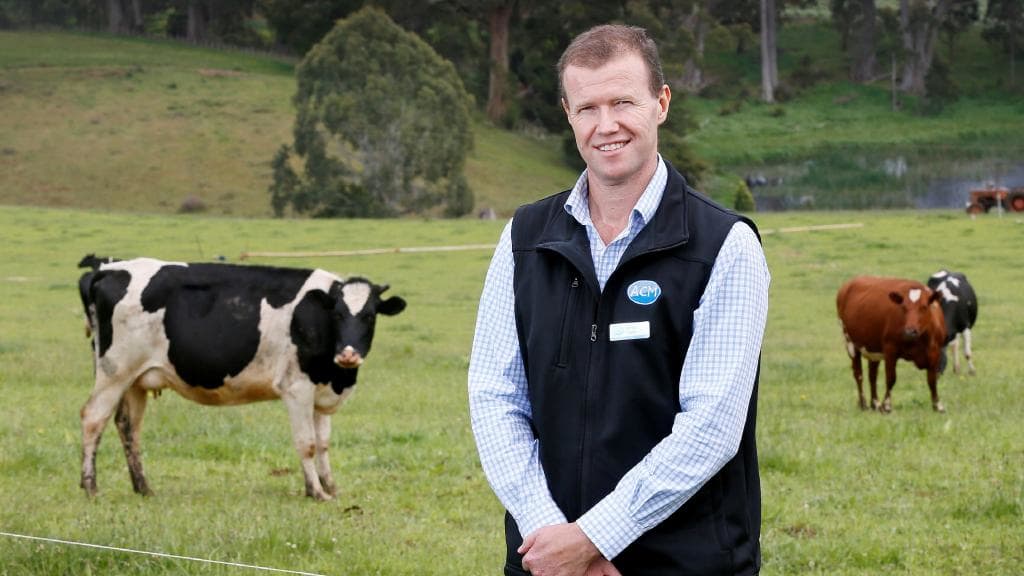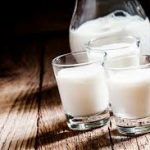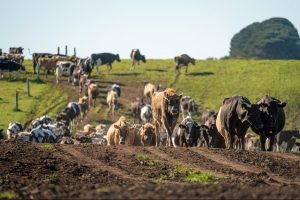
They were key messages delivered at the ABARES Outlook conference in Canberra last week by Australian Consolidated Milk’s commercial general manager Peter Jones.
Speaking to The Weekly Times after the conference, Mr Jones said not every farm was suied to organic farming but if farmers were willing to consider it, ACM would supply the resources to assess whether it was a financial option.
He said that included providing a consultant to assess farm plans, soil testing, auditing farm management practices and reviewing financial plans.
“That’s all so the farmer has got the information to market the right decision,” he said.
“We have had a very good success rate (in farmers switching from conventional to organic milk production) so far.
“That’s partly because we do the groundwork before they start.”
Mr Jones said dairy farmers might end up milking fewer cows, produce less milk and move to a more seasonal milk supply pattern, but they would make that up with a higher milk price.
ACM buys and processes organic milk from farmer suppliers through the Organic Milk Company.
OMC is a separate entity to ACM but has similar shareholdings.
Currently, it processes 25 million litres of organic milk but has another 20 million litres in conversion from conventional milk to organic through the three-year transition process.
Some of the organic milk supplies customers, such as Bellamy’s Organic, while the remainder is converted into OMC’s own branded cheese and butter products.
ACM’s new factory at Girgarre has the ability to process small runs of specialty milk, such as organic.
Mr Jones said OMC guaranteed its farmers converting to organic would receive a minimum price after three years, which was regularly reviewed. At the moment, that is $8/kg of milk solids.
Dairy farmers are able to feed conventional grain to their cows for the first 2½ years of the conversion process but must switch to organic grain in the last six months.
Mr Jones said OMC paid an extra 50 cents/kg MS above the conventional milk price in those last six months to help suppliers cope with the higher cost of organic grain.
OCM uses Direct Feed Australia to source organic grain to milk suppliers as efficiently as possible. “With the drought, it has been hard to find organic grain and it is expensive,” he said.
“What we are doing is giving dairy farmers resources and support.”
This season, OMC was paying its suppliers $8.90/kg MS, compared with about $6/kg MS for conventional milk.
Mr Jones said that premium was in line with what happened in other parts of the world, including Germany.
He said German data showed that organic milk prices were more stable than conventional milk prices.
He said during the downturn in global milk prices in 2015 and 2016, organic prices remained firm.
Mr Jones said demand for organic milk in Australia was still far less than supply, which augured well for prices.
He said Australian dairy farmers produced about 80 million litres of organic milk but imports were the equivalent of about 60 million litres.
“So we can grow by at least 60 million litres to displace those imports,” he said.
“If anyone is thinking about organic, they should have a good look at it because it provides stable pricing and a chance to earn more money and from an occupational, health and safety perspective, it is positive, and from a sustainability/biodiversity perspective, it’s positive.”
























